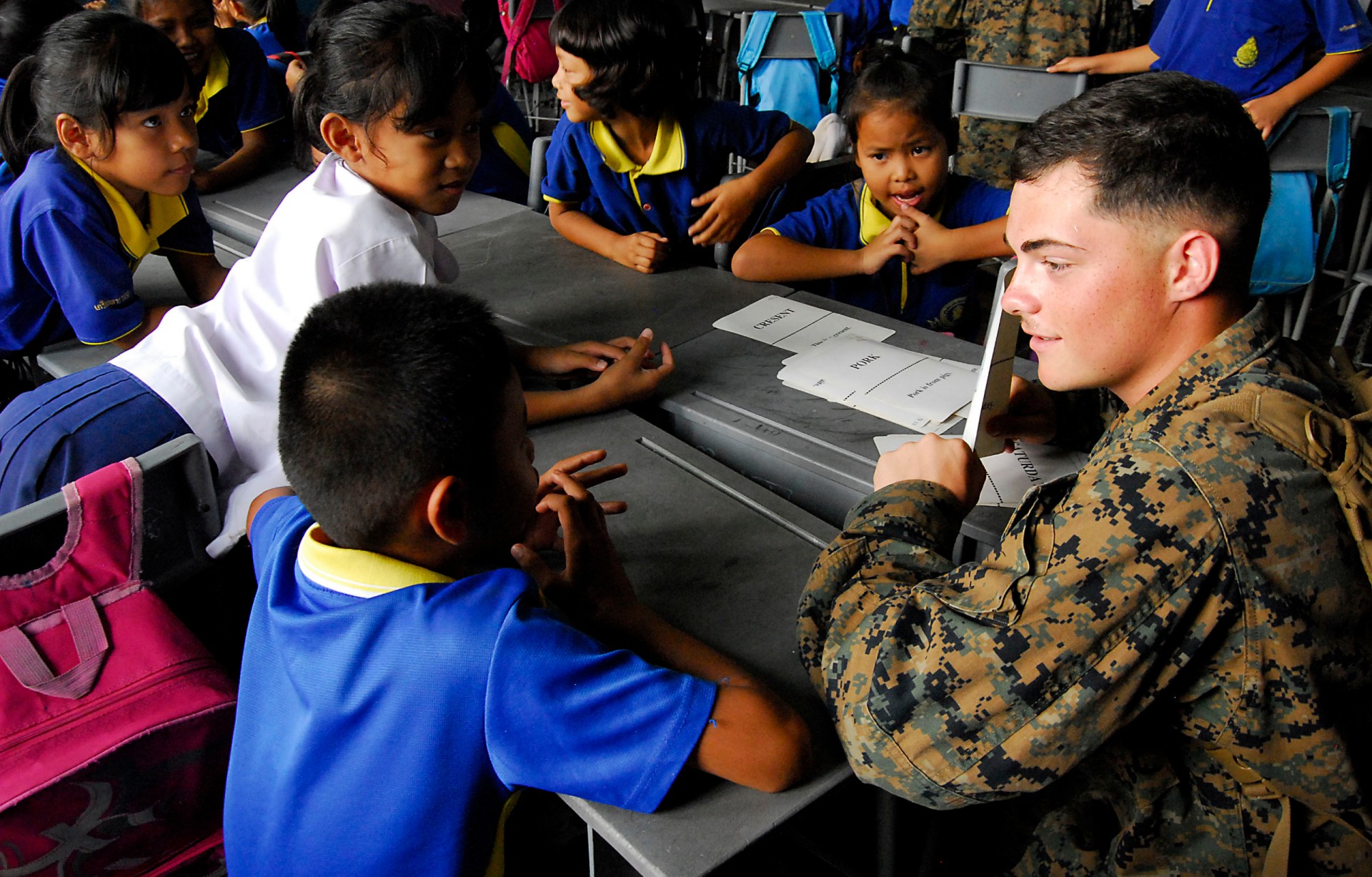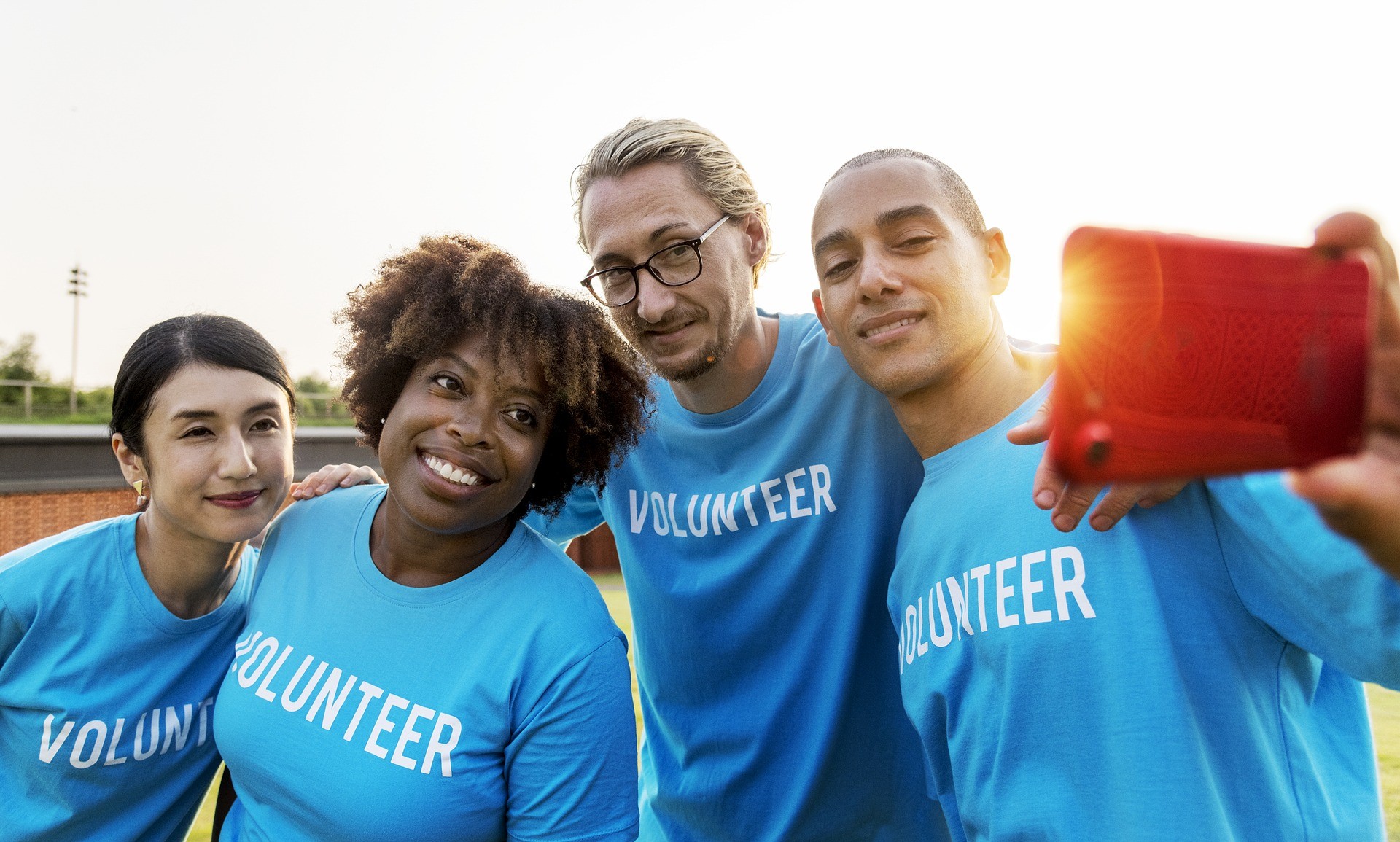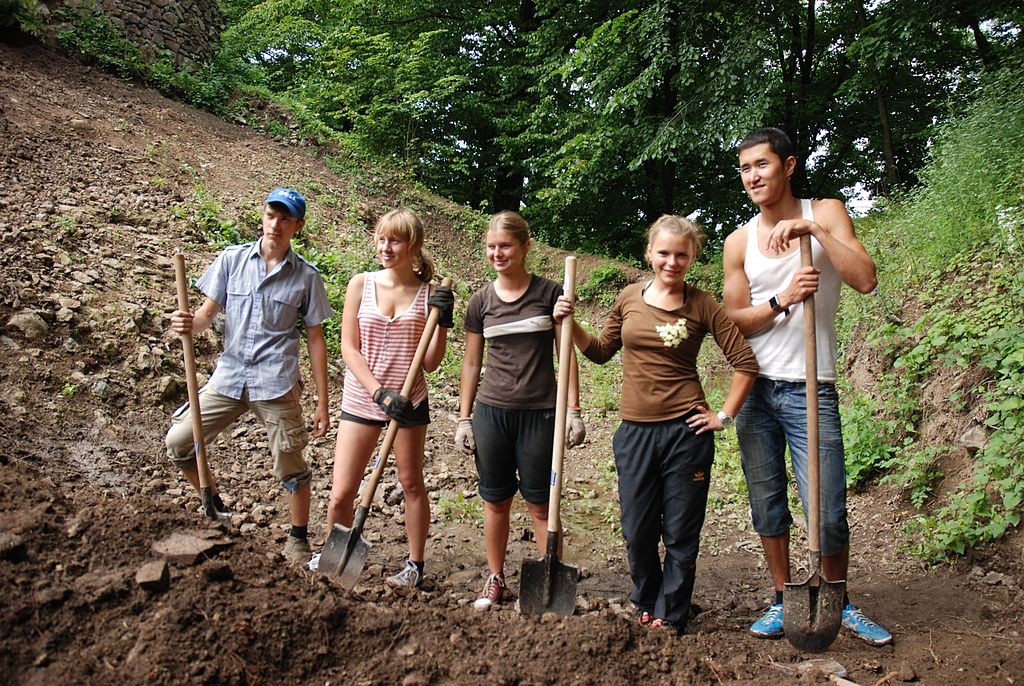First things first: what is voluntourism?
Volunteer-tourism or 'voluntourism’ is promoted as a meaningful and ethical holiday choice, offering authentic experiences that are also beneficial to host communities. The central component of volunteer-tourism is for the ‘voluntourist’, usually from the Global North, to be entertained whilst simultaneously helping others, usually in the Global South.
Common voluntourism activities include English Language Teaching (ELT), medical aid trips, and visiting schools and orphanages. Such is its appeal that voluntourism is now a multi-billion dollar industry that sees over 1.5 million well-meaning individuals volunteer overseas every year.
Voluntourism has been promoted as an effective tool for boosting cross-cultural understanding and exchange, which could ultimately encourage greater critical approaches to global issues such as poverty and inequality.
However, there is also a growing body of critique from academics, activists, and beneficiaries who argue that voluntourism actively harms the communities it targets, let alone benefitting them.
At least 90% of all voluntourism projects take place in the Global South: Latin America, Africa and South-East Asia. This brings accusations of power imbalances, the reinforcement of structural white privilege and even ‘neo-colonialism’.

Unskilled Labour
One of the biggest critiques of voluntourism is its tendency to send unskilled individuals from wealthier countries to poorer countries to work in jobs they would be unqualified for back home.
In many cases, this also leads to saturating the workforce in many countries that already have chronic underemployment. Problems exacerbate as many volunteers have little or no training and often deliver assistance in short-term stints.
The lack of skilled volunteering is compounded by a tendency to work in areas where the real needs of the target community are largely ignored. Typical critiques describe how certain voluntourism companies arrive in a ‘third world’ village, build a well or a school, without even assessing whether they were even needed in the first place.
In my own experience, I visited a school in South Africa someone had donated tablets to be ‘used in the classroom’. The donors had forgotten to include chargers for the tablets, or any instruction on how to use them for pedagogical purposes, and so they ended up being used as coasters.
The influx of unskilled labour also causes its own additional issues. One former volunteer described taking part in an orphanage-building project in Tanzania, in which local men dismantled the structurally unsound work they had done each night, relaying bricks and resetting timbers while the well-meaning students slept (Brown 2014).
Doing good to be seen doing good
The most cynical critics state that volunteer opportunities are more significant in changing the volunteers’ social media feeds than changing even their own perspectives, let alone the communities themselves.
One academic suggested that volunteers are not necessarily driven by goodwill but are instead '...discerning consumers who carefully choose their field of activity and expect a fundamentally self-interested return on their investment, whether it be in the form of self-actualisation, work experience, Facebook profile picture or college reference.'
Satirical newspaper ‘The Onion’ captures this more succinctly in its spoof headline: ‘6-day Visit To Rural African Village Completely Changes Woman’s Facebook Profile Picture’.
Meanwhile, another study found that volunteers tend to maintain a misrepresentation of a generic abstraction, such as ‘Africa’, that is biased and perpetuates misunderstandings of poverty.
In such cases, a racialized needy ‘other’ is (re)constructed as a passive recipient awaiting the benevolent hand of the West. Many volunteers also adopt antagonistic and superficial understandings of poverty, seeing poverty at home as different to poverty ‘over there’, effectively missing the point on shared systems of inequality that affect all people in poverty regardless of geography.
Furthermore, and despite stated aims, voluntourism often fails to bridge the empathy gap, and can even reinforce negative, even racist stereotypes of the target communities.

Perverse Economics’
Perhaps the strongest critique of voluntourism is that it actually reinforces the underlying structures of poverty and inequality that it seeks to alleviate.
Journalist Tina Rosenberg argues that voluntourism is built on 'perverse economics'. She explains: "The aspiration to help the most vulnerable [...] is a noble one, but the booming business of voluntourism sustains practices and institutions that actually do harm".
Indeed, governments in voluntourism hotspots around the world are often reluctant to fund anti-poverty measures when treatments for the symptoms (e.g orphanages) essentially drop from the sky.
Recent studies have also found an inverse relationship between profit and responsibility whereby companies that charge the most are also the least transparent, and so fall the furthest from voluntourism’s central ethic.
The worst culprits have also become adept at hiding or misrepresenting their finances, masking excessive profit margins to the detriment of target communities and volunteers alike.

Abandonment issues
Meanwhile, working with young people in particular risks perpetuating feelings of abandonment and hopelessness. When children are dependent on random strangers for affection, it stunts their ability to form healthy attachments particularly when volunteers disappear after a few weeks.
Perhaps the darkest side of voluntourism has been revealed over the previous years in the case of orphanages. Following decades of research into childcare, orphanages in much of the ‘developed’ world have been replaced by foster care; yet people from these same places are nonetheless maintaining a stream of charitable giving that makes orphanages viable businesses abroad.
Donors, usually from religious groups, often set up orphanages as ‘short-term’ responses to crises such as conflict or natural disasters; but the steady stream of donations encourages these orphanages to stay open longer-term.
The demand to work in orphanages in countries such as Cambodia and Nepal has furthermore been found to contribute to the abandonment, or even abduction of children from their parents to fuel the tourist boom.
The negatives are so severe that the Australian parliament is considering a law to label orphanage tourism as ‘child trafficking’ and ban it entirely.
In 2016, the London School of Economics also set up a consortium of universities pledging not to advertise orphanage placements to their students. With any luck, the trend of orphanage volunteering will dissipate as a result.
Given these criticisms, it is easy to see why there are increasing calls for people to volunteer closer to home and avoid volunteering abroad altogether. Sadly, voluntourism as an industry encapsulates how the best-intentions of volunteers can lead to the detriment of target communities. Can international volunteering only reinforce structures of inequality and dependency? Or is there a way to make it more sustainable and ethical? At any rate, the demand for voluntourism is not going to disappear overnight, so perhaps there is value in trying.
Were you thinking about going voluntouring before reading this article? As explained above voluntouring isn't just harmful to local communities but it is also an expensive endeavour for the volunteers themselves. How about instead of paying the recruiters hundreds and thousands, you take yourself on a nice holiday and donate the money you save? Your money will have much more impact with established effective organisations.
The Max Foundation is one such organisation. The Kinder vetted charity focuses on two outcome areas in South Asia: improving child health and providing water sanitation services to households. The foundation saves and improves the lives of hundreds of thousands of people, especially children, every year. By donating below, you too can have a positive impact on the lives of these people.




